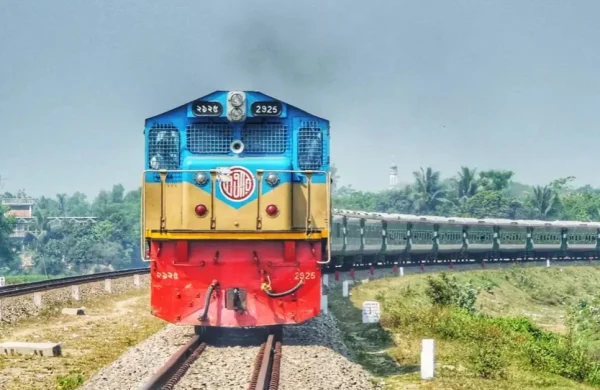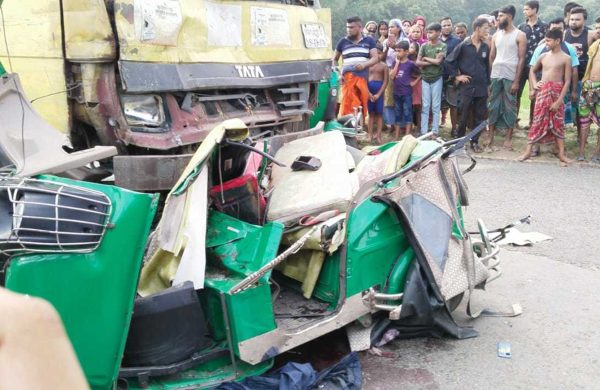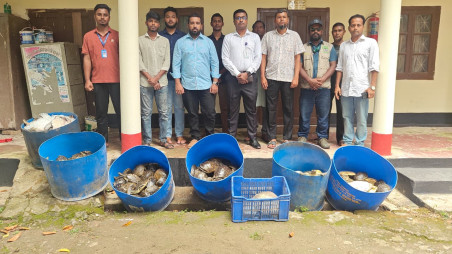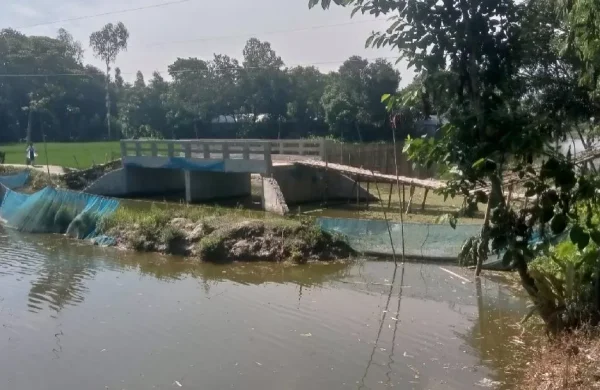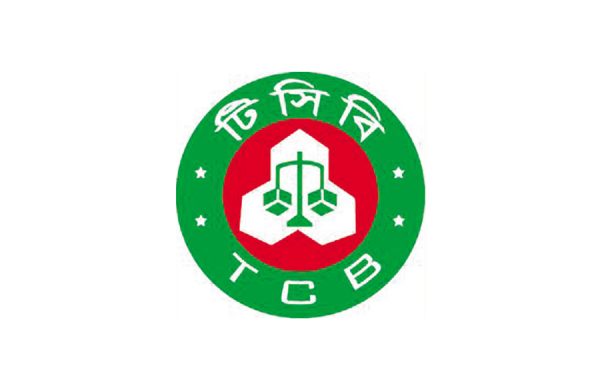What makes Sheikh Hasina fall?
- Update Time : Thursday, August 15, 2024
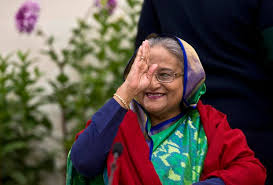
–Abu Sufian–
Yemeni human rights activist Tawakkul Karman, known as “The Mother of the Revolution,” once said, Youth is a revolution; they cannot be stopped, they cannot be suppressed, and they cannot be silenced. Karman’s words came true in Bangladesh on August 5. On that day, Sheikh Hasina, known as the iron lady of Bangladesh, resigned and fled the country after weeks of deadly protests. A non-violent movement by the students against the introduction of a quota system in the country’s government jobs quickly turned into an anti-government Gen-Z revolution. The youth uprising has struck a chord in a society already deeply enraged by the rising cost of living, corruption, and violent repression of dissent. Sheikh Hasina-led Awami League formed the government for the fifth time and has been in power for 15 years but was forced to resign due to the intensity of the movement conducted by people from all walks of life. During his rule, there were allegations of various types of corruption, including vote rigging, irregularities, and elections without the main opposition party.
There are hints of this kind of large-scale movement in various South Asian countries. It began with the overthrow of Sri Lanka’s government. Later, this revolution moved to Bangladesh and toppled the Hasina government. Now, glimpses can be seen in India and Pakistan. Students in Pakistan have already organized protests to establish true democracy. On the other hand, a prominent Congress leader in India warned that India’s future political instability would have the same outcome as Bangladesh and Sri Lanka. He predicted that, like the riot-ravaged Bangladesh, people in India will one day storm and occupy Prime Minister Modi’s official residence.
Two years ago, in 2022, Sri Lankan people from all walks of life started a movement to end the corrupt rule of the Rajapaksa family in Sri Lanka. As a result, Sri Lanka’s dynastic politics collapsed. The Sri Lanka PodujanaPeramuna (SLPP) won a majority in the 2020 Sri Lankan parliamentary elections to form the government. But most of the party’s cabinet ministers were from the Rajapaksa family. Former Sri Lankan President Mahinda Rajapakse was the head of government. Gotabaya Rajapaksa was the president. Chamal Rajapaksa was appointed as Minister of Agriculture, Namal Rajapaksa as Minister of Sports and Youth Affairs, and Basil Rajapaksa as Minister of Finance. The opposition accused the government of nepotism.
In 2021, the Sri Lankan economy suffered a massive collapse due to the Corona epidemic. The tourism-based economy becomes almost fragile. The popularity of the Rajapaksa-led government began to decline in 2021 due to poor management of the economy. Moreover, due to the banning of chemical fertilizers, the country faced a severe food crisis at one stage. A falling national currency exchange rate, high food prices fueled inflation, and pandemic restrictions on tourism further reduced the country’s income. Imports also fell as the government failed to preserve reserves. As remittances declined, GDP also collapsed. Moreover, the government’s high-budget megaprojects were unproductive. At one stage the movement to overthrow the government started, and Mahindra Rajapaksa was forced to resign. The Sri Lankan people’s movement became successful.
The world saw such a mass uprising during the Arab Spring that began in 2010. The mass awakening organized by the people of the Arab world for various demands became known as the Arab Spring. The Arab Spring began on December 17, 2010 in Tunisia. An educated, unemployed youth named Mohammad Bouazizi, a fruit seller, committed suicide by setting himself on fire in protest against police corruption and misbehavior. From that day on, the movement to overthrow the dictator Ben Ali began. Arab Spring protests led to the fall of dictator Ben Ali in Tunisia on January 14, 2011. The mass protests that started in Tunisia spread to Egypt, Libya, Syria, Yemen, and other Arab countries.
Arab Spring can be attributed to government corruption, dictatorship, human rights violations, unemployment, extreme poverty, a weak economy, and rising food prices. The people of different Arab countries began to unite against the dictators and started anti-government movements to free themselves from their dictatorial rule for a long time. As a result, Hosni Mubarak, the ruler of Egypt for 30 years, fell on February 11, 2011. Muammar al-Gaddafi was killed in Libya on October 20 of the same year, ending his 42-year rule. The Arab Spring led to major uprisings in Algeria, Yemen, Bahrain, Egypt, Iran, Jordan, Libya, Morocco, Tunisia, and smaller uprisings in Iraq, Kuwait, Mauritania, Oman, Saudi Arabia, Sudan, and Syria.
Recently, student and general public movements are being observed in various South Asian countries. India’s staunch Hindutva political party, BJP, is in power. The Modi government has been heavily criticized for its several controversial activities, including using religion in politics, providing extra benefits to businessmen, the Citizenship Amendment Act-2019, and meddling in the politics of other countries. In recent times, the states of Tripura, Meghalaya, Mizoram, Manipur, Assam, and Nagaland have seen insurgencies at various times in northeastern India.
The Jammu and Kashmir issue has also intensified since 2019. The decision to change the status of Jammu and Kashmir to two separate Union Territories came on 5 August 2019, when the Indian government abrogated Article 35A from its constitution. Also, the movement to form a separate country of Sikhs named Khalistan is ongoing. The proposed country of Khalistan consists of Punjab in Pakistan and Punjab in India and also includes Haryana, Himachal Pradesh, Jammu and Kashmir, and Rajasthan. India is worried about the collapse of pro-Indian governments in neighboring countries as well. People are slowly getting fed up with the strict Hindutva attitude of the BJP, the party of the Modi government. The anti-BJP sentiment is growing in India.
Similar to Bangladesh, the students of Pakistan, another south Asian country, have also called for a movement to restore the country’s constitution and revitalize the student unions. The movement was called by the Insaf Students Federation (ISF), the student wing of Pakistan Tehreek-e-Insaf (PTI), demanding the release of former Prime Minister Imran Khan and the restoration of a true democracy in the country. Apparently influenced by the Bangladeshi student movement that brought down the Sheikh Hasina government, the ISF called the protest, renowned Pak media Dawn reported.
Similar to the Arab Spring, the movement against the governments in South Asian countries is slowly being witnessed. The mass protests have already succeeded in Sri Lanka and Bangladesh. In the distant future, there is a strong possibility that we may see another spring in the volatile politics going on in other South Asian countries as well.









